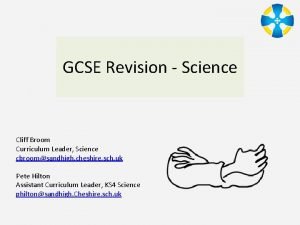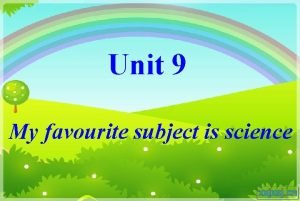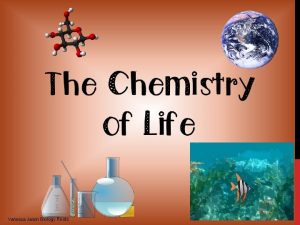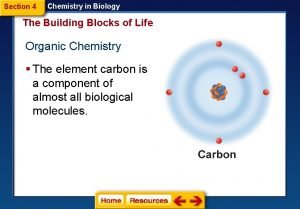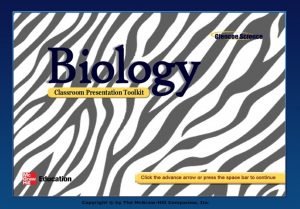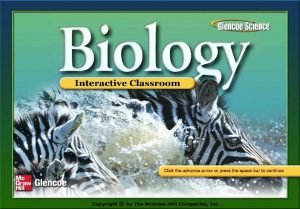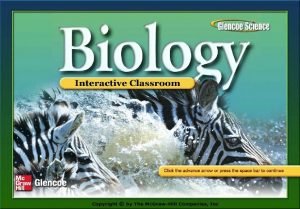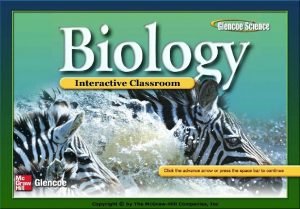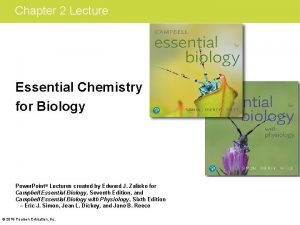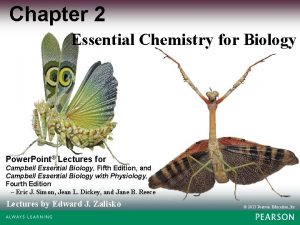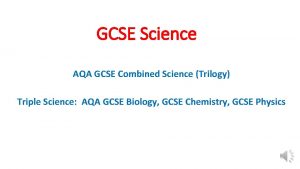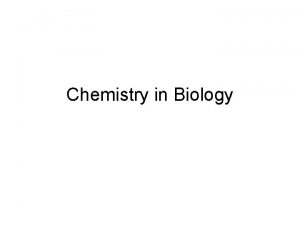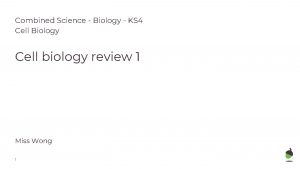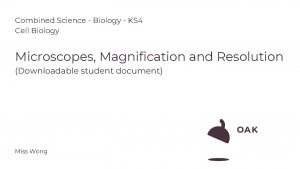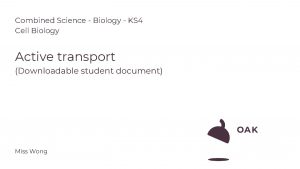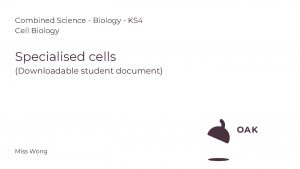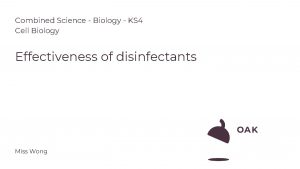GCSE Combined Science GCSE Biology GCSE Chemistry GCSE

GCSE Combined Science GCSE Biology GCSE Chemistry GCSE Physics

Opportunities for students: Combined Science GCSE Separate sciences GCSE • Core subject – exam board AQA • Students study Biology, Chemistry and Physics. • Students achieve 2 GCSE grades • Students study Biology, Chemistry and Physics but there is extra content in each. • Students are awarded three separate GCSE grades: • GCSE Biology • GCSE Chemistry • GCSE Physics Click on the speaker icon for commentary

Combined Science GCSE content • We follow the specification for AQA GCSE Combined Trilogy • https: //www. aqa. org. uk/subjects/science/gcse/combined-sciencetrilogy-8464 Chemistry Biology 1. Cell biology 2. Organisation 3. Infection and response 4. Bioenergetics 5. Homeostasis and response 6. Inheritance, variation and evolution 7. Ecology 8. Atomic structure and the periodic table 9. Bonding, structure, and the properties of matter 10. Quantitative chemistry 11. Chemical changes 12. Energy changes 13. The rate and extent of chemical change 14. Organic chemistry 15. Chemical analysis 16. Chemistry of the atmosphere 17. Using resources Physics 18. Energy 19. Electricity 20. Particle model of matter 21. Atomic structure 22. Forces 23. Waves 24. Magnetism and electromagnetism

GCSE Combined Science assessment There are six papers: two biology, two chemistry and two physics. Each of the papers will assess knowledge and understanding from distinct topic areas . 3 x Paper 1 Biology, Chemistry and Physics • • How each paper is assessed: Written exam: 1 hour 15 minutes Foundation and Higher Tier 70 marks 16. 7% of GCSE Questions Multiple choice, structured, closed short answer, and open response. 3 x Paper 2 Biology, Chemistry and Physics How it's assessed • Written exam: 1 hour 15 minutes • Foundation and Higher Tier • 70 marks • 16. 7% of GCSE Questions Multiple choice, structured, closed short answer, and open response.

Separate science content Biology • https: //www. aqa. org. uk/subjects/science/gcse/biology-8461 • 1. Cell biology • 2. Organisation • 3. Infection and response • 4. Bioenergetics • 5. Homeostasis and response • 6. Inheritance, variation and evolution • 7. Ecology • 8. Key ideas

Separate sciences content GCSE Chemistry https: //www. aqa. org. uk/subjects/science/gcse/chemistry-8462 • • • 1. Atomic structure and the periodic table 2. Bonding, structure, and the properties of matter 3. Quantitative chemistry 4. Chemical changes 5. Energy changes 6. The rate and extent of chemical change 7. Organic chemistry 8. Chemical analysis 9. Chemistry of the atmosphere 10. Using resources

Separate sciences content GCSE Physics https: //www. aqa. org. uk/subjects/science/gcse/physics-8463 • • 1. Energy 2. Electricity 3. Particle model of matter 4. Atomic structure 5. Forces 6. Waves 7. Magnetism and electromagnetism 8. Space physics (physics only)

GCSE Separate sciences assessment. Two papers for each science GCSE Paper 1: • • How it's assessed: Written exam: 1 hour 45 minutes Foundation and Higher Tier 100 marks 50% of GCSE Questions Multiple choice, structured, closed short answer and open response Paper 2: How it's assessed: • Written exam: 1 hour 45 minutes • Foundation and Higher Tier • 100 marks • 50% of GCSE • Questions • Multiple choice, structured, closed short answer and open response.

Why choose Separate Sciences? • Students who ask to study separate sciences are usually those who have a specific science or STEM based career in mind. • They usually continue on to A level sciences. • However, most colleges do still allow students to study A level sciences with GCSE Combined Science – but students would need to catch up on some content. • Separate science is not in the option process – interested students are given a place based on their attitude and commitment to their science work – we review homework, classwork, attitude in lessons and their R point report. • Students who study separate science have more science lessons per week, which means they lose 1 lesson of PE per week.

What next? • If you want to study separate science, you should make sure that your teacher is aware of this. • If you have any questions you can ask your teacher. • Remember, year 9 s have already started to study GCSE science so you are aware of the course already.
- Slides: 10

